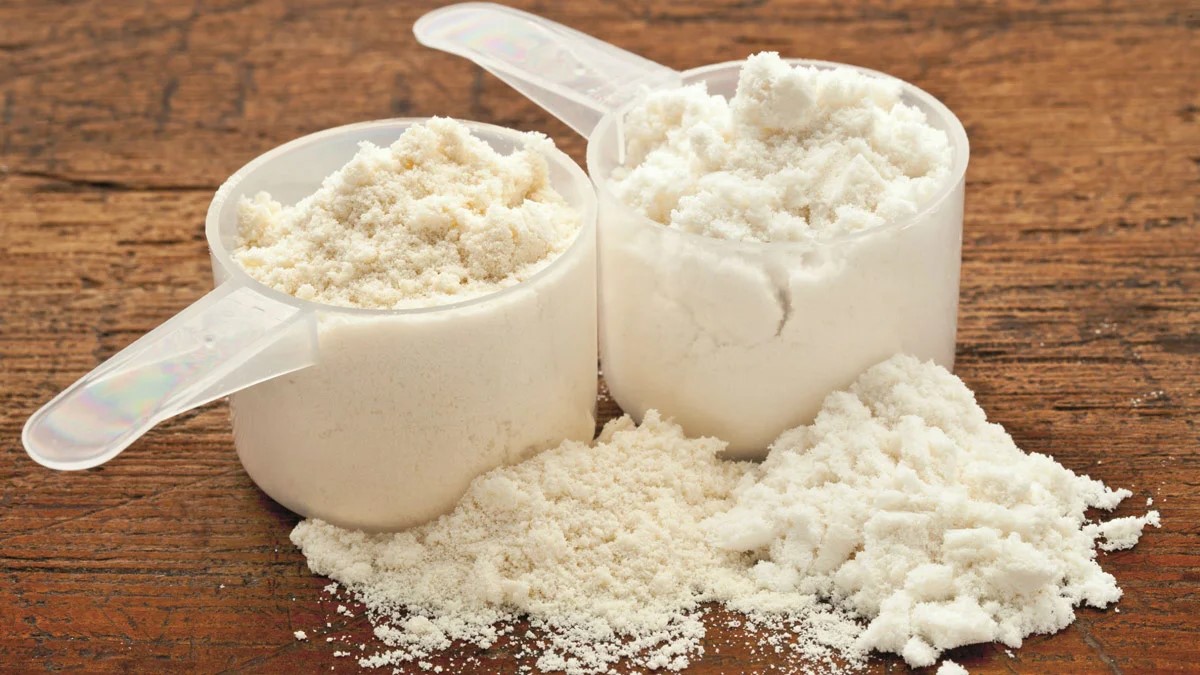
Casein is a protein found in milk and dairy products. It's the main component of cheese and gives milk its white color. But what makes casein so special? Casein is unique because it digests slowly, providing a steady release of amino acids. This makes it a favorite among bodybuilders and athletes who need a prolonged protein source. Besides its nutritional benefits, casein has various industrial uses, from adhesives to paints. Ever wondered why some people avoid dairy? It’s often due to casein intolerance, which can cause digestive issues. Ready to learn more? Here are 50 facts about casein that might surprise you!
Key Takeaways:
- Casein, found in milk, is a slow-digesting protein that helps with muscle repair and weight loss. It's in cheese, yogurt, and protein supplements, making it a popular choice for athletes and bodybuilders.
- While casein offers health benefits, it can also cause allergies and has an environmental impact. Understanding its differences from whey protein and its use in different cultures can help make informed dietary choices.
What is Casein?
Casein is a protein found in milk and dairy products. It makes up about 80% of the protein in cow's milk. This protein is known for its slow digestion, making it a popular choice among athletes and bodybuilders.
- Casein is a complete protein, meaning it contains all nine essential amino acids.
- It is the main protein in cheese, giving it its texture and structure.
- Casein forms a gel or clot in the stomach, which slows down its digestion and absorption.
- This slow digestion makes it ideal for nighttime consumption, providing a steady release of amino acids.
- Casein is often used in protein supplements for muscle recovery and growth.
Health Benefits of Casein
Casein offers several health benefits, especially for those looking to build muscle or maintain a healthy diet. Here are some key benefits:
- It helps in muscle repair by providing a steady supply of amino acids.
- Casein can aid in weight loss by promoting a feeling of fullness.
- It has been shown to improve dental health by reducing enamel erosion.
- Casein contains bioactive peptides that have antimicrobial and immune-boosting properties.
- It may help in lowering blood pressure due to its peptide content.
Casein in Food Products
Casein is not just found in milk; it is also present in various food products. Understanding where it is can help you make informed dietary choices.
- Cheese is one of the richest sources of casein.
- Yogurt also contains a significant amount of casein.
- Many protein bars and shakes use casein as a primary ingredient.
- Casein is used in processed foods like sausages and hot dogs as a binding agent.
- It is also found in infant formulas to mimic the protein content of breast milk.
Casein Allergies and Intolerances
While casein offers many benefits, it can also cause issues for some people. Allergies and intolerances are important to consider.
- Casein allergy is an immune response to the protein, causing symptoms like hives and digestive issues.
- Lactose intolerance is different from a casein allergy but can sometimes be confused with it.
- People with casein allergies should avoid all dairy products.
- Hydrolyzed casein is sometimes used in hypoallergenic formulas to reduce allergic reactions.
- Casein can also trigger inflammatory responses in some individuals.
Casein vs. Whey Protein
Casein and whey are both proteins found in milk, but they have different properties and benefits. Understanding these differences can help you choose the right protein for your needs.
- Whey protein is digested quickly, making it ideal for post-workout recovery.
- Casein protein is digested slowly, providing a prolonged release of amino acids.
- Whey is better for immediate muscle repair, while casein is better for long-term muscle maintenance.
- Casein has a higher glutamine content, which is beneficial for immune function.
- Whey protein is often considered more bioavailable, meaning the body can use it more efficiently.
Casein in Sports Nutrition
Athletes and bodybuilders often use casein to enhance their performance and recovery. Here’s why it’s popular in sports nutrition.
- Casein provides a steady release of amino acids, which is crucial for muscle repair.
- It helps in preventing muscle breakdown during long periods without food.
- Casein is often consumed before bed to support overnight muscle recovery.
- It can be combined with whey protein for a balanced protein intake.
- Casein is also used in meal replacement shakes for its slow-digesting properties.
Environmental Impact of Casein Production
The production of casein, like other dairy products, has an environmental impact. Understanding this can help you make more sustainable choices.
- Casein production contributes to greenhouse gas emissions.
- It requires a significant amount of water and land resources.
- Some companies are working on sustainable farming practices to reduce the environmental impact.
- Plant-based casein alternatives are being developed to offer a more sustainable option.
- Reducing dairy consumption can help lower your carbon footprint.
Fun Facts About Casein
Casein has some interesting and lesser-known facts that might surprise you. Here are a few fun tidbits.
- Casein is used in glues and adhesives due to its binding properties.
- It has been used in paint and coatings for its durability.
- Casein was once used in the production of plastic items like buttons.
- Some cosmetics use casein for its moisturizing properties.
- Casein can be found in some medications as a stabilizer.
Casein in Different Cultures
Casein is used differently around the world, reflecting various culinary traditions and dietary practices.
- In India, casein is used to make paneer, a popular cheese.
- Greek yogurt is rich in casein and is a staple in Mediterranean diets.
- Italian cuisine uses casein-rich cheeses like mozzarella and parmesan.
- French cuisine features casein in cheeses like brie and camembert.
- In Japan, casein is used in some traditional sweets and snacks.
Future of Casein
The future of casein looks promising with ongoing research and innovation. Here’s what to expect.
- Synthetic casein is being developed to reduce reliance on animal products.
- Genetic engineering may produce casein with enhanced nutritional properties.
- Casein-based bioplastics are being researched as a sustainable alternative to traditional plastics.
- Advances in food technology may lead to new and improved casein products.
- The demand for high-quality protein will likely keep casein in the spotlight for years to come.
Final Thoughts on Casein
Casein, a protein found in milk, plays a significant role in nutrition and health. Known for its slow digestion, it provides a steady release of amino acids, making it a popular choice for nighttime protein supplementation. It's also a key ingredient in many dairy products like cheese and yogurt. Despite its benefits, some people may experience allergies or intolerances, so it's important to monitor your body's response. Casein's versatility extends beyond food, being used in adhesives, paints, and even some plastics. Whether you're looking to boost your protein intake or explore its various applications, understanding casein can be quite beneficial. Remember, balance and moderation are key in any diet. So, next time you enjoy a glass of milk or a slice of cheese, you'll know a bit more about the protein working behind the scenes.
Frequently Asked Questions
Was this page helpful?
Our commitment to delivering trustworthy and engaging content is at the heart of what we do. Each fact on our site is contributed by real users like you, bringing a wealth of diverse insights and information. To ensure the highest standards of accuracy and reliability, our dedicated editors meticulously review each submission. This process guarantees that the facts we share are not only fascinating but also credible. Trust in our commitment to quality and authenticity as you explore and learn with us.


